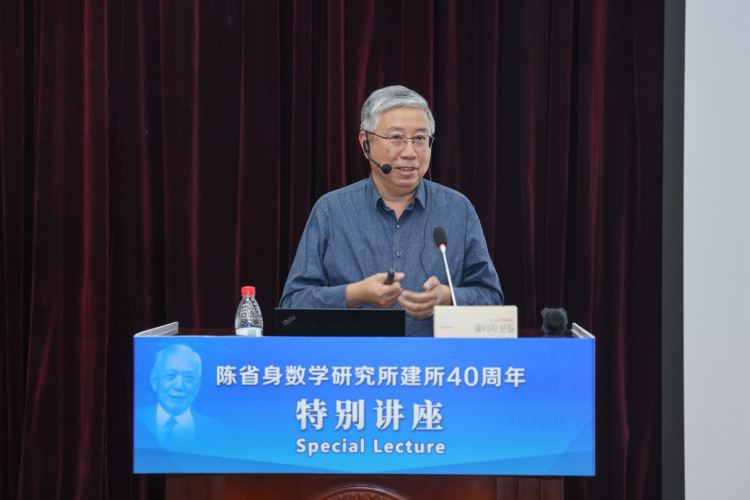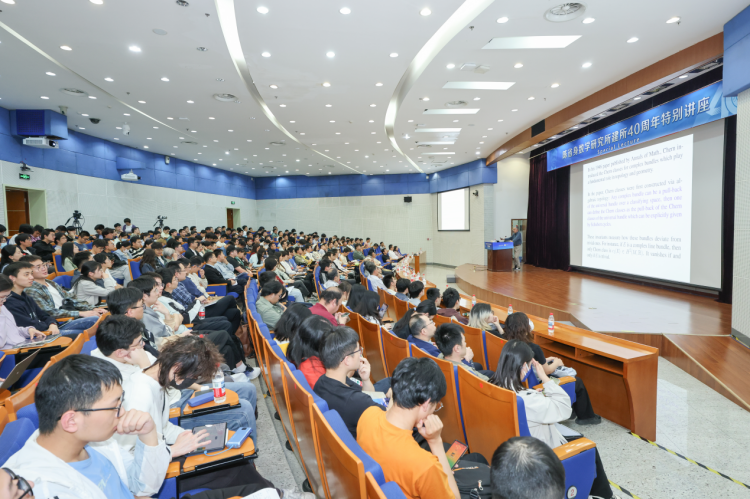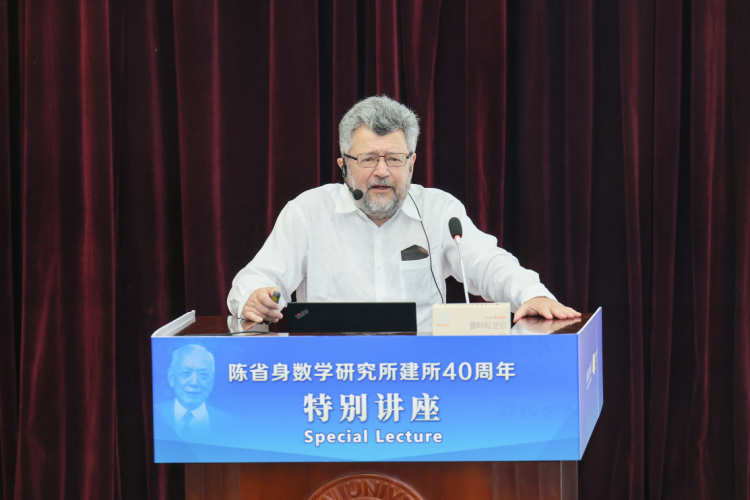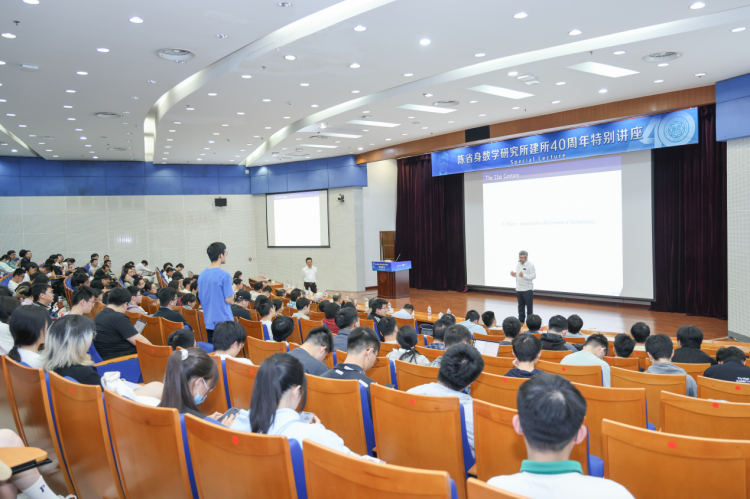Academician Tian Gang and Fellow Efim Zelmanov Present at “Special Lecture on the 40th Anniversary of the Chern Institute of Mathematics”
On April 17, Tian Gang, Academician of the Chinese Academy of Sciences (CAS), Chair Professor at Peking University, and Director of the Beijing International Center for Mathematical Research, and Efim Zelmanov, Fields Medal winner, fellow of the U.S. National Academy of Sciences, and Foreign Academician of the CAS, gave academic reports entitled “Transgression and Complex Geometry” and “Mathematics in the Modern World”, respectively, at the Special Lecture on the 40th Anniversary of the Chern Institute of Mathematics.
Before the lecture, Chen Yulu, President of Nankai University, met with Tian Gang and Efim Zelmanov. Vice President Bai Chengming; Ge Mo-Lin, Long Yiming, and Zhang Weiping, academicians of the CAS and professors at the Chern Institute of Mathematics, and faculty members were also present at the meeting.

In the lecture, Tian Gang recalled his experience of exchange study at Nankai University in 1983, and introduced in detail the influence of Shiing-Shen Chern’s mathematical work on modern mathematics, especially the concept of Chern class introduced by Prof. Chern in 1946 to complex vector bundles. This innovation has a far-reaching influence in the field of mathematics, and has also blazed a trail for the development of geometry and topology. Tian elaborated on the curvature representation of Chern class and related transgression forms, with a focus on the application of an important transgression form, the Bott-Chern form, in complex geometry. He pointed out that the Bott-Chern form can not only reproduce or derive a variety of holomorphic invariants, but also construct functionals for classical metrics in complex geometry. He introduced the importance of the Bott-Chern form to classical problems such as the existence of Kähler-Einstein metrics and Kähler metrics of constant scalar curvature, and mentioned the application of the Bott-Chern form in equivariant situations.

After the lecture, Tian Gang entered into discussions with Nankai University faculty and students on frontier problems in mathematics including the Hodge conjecture and the Calabi conjecture on noncompact manifolds.

On the same day, Efim Zelmanov discussed the emergence of group theory, starting with Galois theory, and introduced the application of finite fields in modern coding theory and cryptography. Through the cases of signal error-correcting code of the Voyager probe and the encryption protocol of the smartphone, he showed how the abstract mathematical concept of finite field can ensure the efficiency and security of information transmission.
During the lecture, Efim Zelmanov emphasized the importance of mathematical tools such as algebra, calculus, and probability theory in modern artificial intelligence.

In the Q&A session, Efim Zelmanov shared his insights on the relationship between AI and mathematics research, how students learn mathematics, etc., providing vital inspiration for students’ academic and career planning in the era of artificial intelligence.
The special lecture attracted hundreds of faculty and students from the Chern Institute of Mathematics, the School of Mathematical Sciences, the School of Statistics and Data Science, and other schools and colleges.
(Edited and translated by Nankai News Team.)









